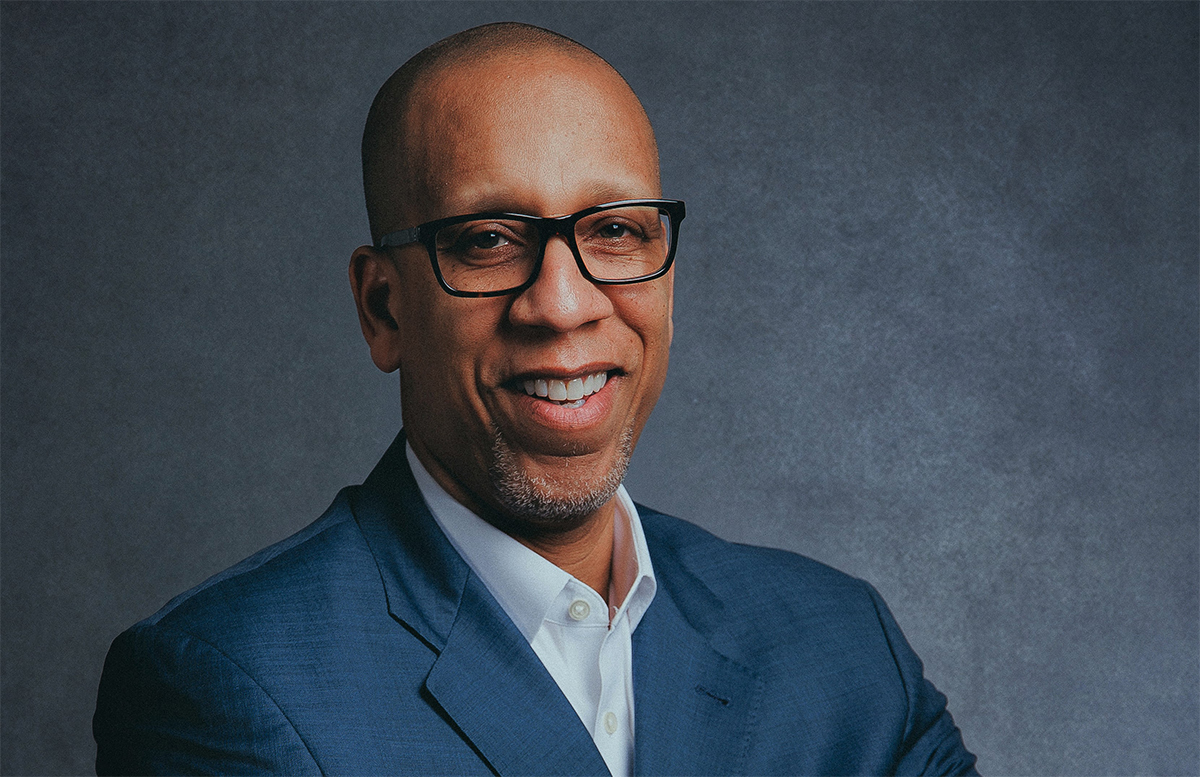Dennis’ Shield™ Story
Dennis has always made it a priority to take care of his health. He eats well, exercises, and sees his primary care physician for annual check-ups. But when it’s come to colon cancer screening, he has not been as proactive as he’d ordinarily expect himself to be.
Challenges with Colon Cancer Screening
After being diagnosed with a benign brain tumor at 49 in 2018, Dennis’ doctor completed a battery of tests to screen for a variety of things. It was then that his doctor mentioned screening for colon cancer for the first time. He recommended a colonoscopy, and Dennis agreed to schedule it.
“Cancer is a very real thing in my family. I lost my dad to smoking-related lung cancer when he was 59. One of my uncles died of bone cancer at age 61, another uncle is living with leukemia, and I recently lost my first cousin to prostate cancer at the age of 52. My understanding is that for men of color, many types of cancer are more prevalent in our community. And of course, age is an obvious cancer risk. So at the end of the day, I believe in being proactive in terms of actively managing my health.”
However, despite his best intentions, Dennis did not follow through with scheduling his colonoscopy. And for several years after that, he also did not complete the paperwork required to receive an at-home stool-based colorectal cancer screening test.
When Dennis saw his doctor in the spring of 2022, his doctor told him that he now had a different screening option for him – one that could be done conveniently and required no special preparation, diet changes, sedation, or stool collection. It was the Shield™ blood test. Dennis was intrigued by this new option for screening and agreed to try it.
“Most people in my situation know we’re supposed to get screened. But it’s hard to find the time to schedule it if you have a busy life and a demanding job – and you’re a husband and father and you do things in the community. It’s easy to let it slip down on the priority list, particularly if you feel relatively healthy. But the Shield blood test made being screened for colon cancer as convenient as it could possibly be.”
From Screening Staller to Screening Advocate

While Dennis was fortunate that his Shield test result came back normal and did not identify a signal suspicious for colon cancer, he realized the risk he had taken by waiting so long to screen. He is now making it his mission to educate others in his own community about colon cancer, the importance of screening, and the different options that are available to patients today.
“I’ve read that about a third of adults are not completing the recommended colon cancer screening. I want to help change that by talking about it.”
In fact, Dennis is a decades-long member of a college fraternity that holds monthly meetings to talk about things like social service and trying to make their respective communities as good as they can be. After Dennis screened with Shield, he stood up and shared his experience with the group. In doing so, Dennis wanted to encourage his fraternity brothers to take control of their health and stay up-to-date with their own screening. He strongly believes it’s crucial to catch cancer as early as possible when there’s a chance of fighting it successfully. And he thinks a message like this one is particularly important for his fellow men of color to hear.
“There are a number of social forces that can make men of color feel that they’re supposed to be tough and impenetrable, like we’re invincible. They may not want to think about things like cancer screening. But my message is that knowing less about your health is never better than knowing more.”
Dennis believes it’s important for people to pay attention to their health, their bodies, to ask questions, and to be their own advocates.
“When I was a kid, all we had was the encyclopedia—and at my house, we didn’t even have the whole set. But today, we have access to more information than ever before. The information about lifestyle changes, risk factors, screening, and prevention is all available to us. We just have to know the right questions to ask, and then try to make the right choices. From a health care perspective, so many things are not in our control. But by getting screened, we can have one less thing to worry about.”